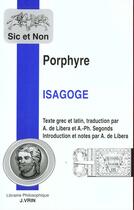-
Date de parution : 09/04/2013
-
Editeur :
Vrin
-
EAN : 9782711624614
-
Série :
(-)
-
Support :
Papier
Résumé:
In the 13th century many of the Latin doctrines of the soul, intellect and perception were heavily influenced by Arabic sources, being Avicenna and Averroes the most significant ones. Their reading of Aristotle's De anima stresses either a more or less Neoplatonic conceptual framework or a... Voir plus
In the 13th century many of the Latin doctrines of the soul, intellect and perception were heavily influenced by Arabic sources, being Avicenna and Averroes the most significant ones. Their reading of Aristotle's De anima stresses either a more or less Neoplatonic conceptual framework or a return to the purported Peripatetic roots. This volume deals with the generation and transmission of the Aristotelian science of the soul from Arabic into Latin and, incidentally, into Hebrew. It becomes clear that Latin discussions, such as in Albert the Great, Thomas Aquinas or Roger Bacon and John Duns Scotus, should be thought of as the result of the either affirmative incorporation and transformation of the Arabic-Aristotelian tradition or its rejection. Even though rooted in different theological and philosophical traditions, it is clear that the Arabic and Latin theories of the soul use a common Aristotelian language.
Donner votre avis









